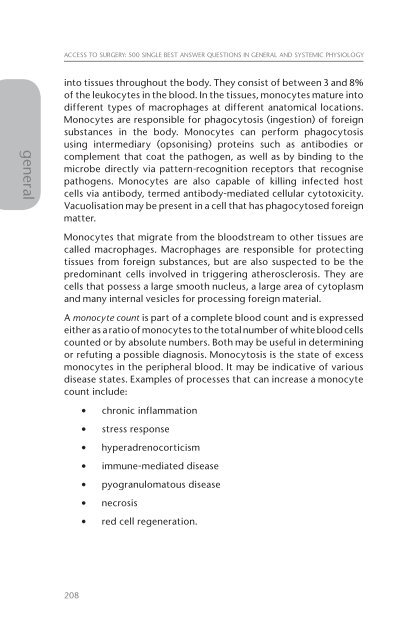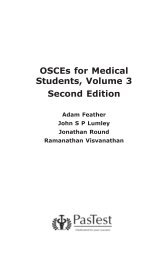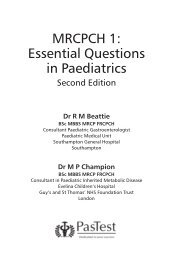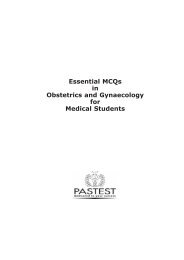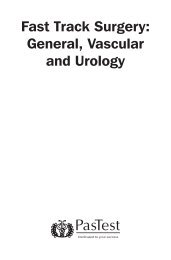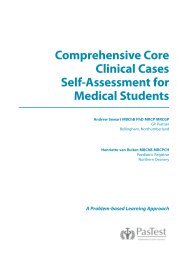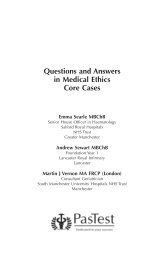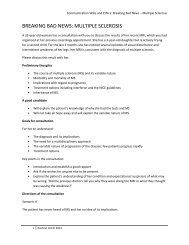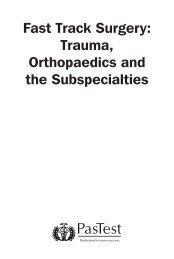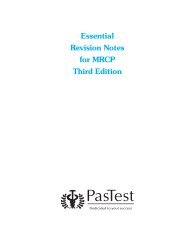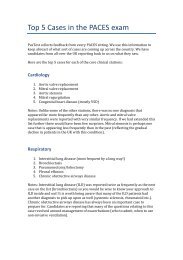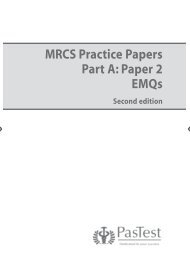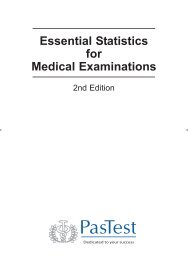ACCESS TO SURGERY: 500 SINGLE BEST ANSWER ... - PasTest
ACCESS TO SURGERY: 500 SINGLE BEST ANSWER ... - PasTest
ACCESS TO SURGERY: 500 SINGLE BEST ANSWER ... - PasTest
You also want an ePaper? Increase the reach of your titles
YUMPU automatically turns print PDFs into web optimized ePapers that Google loves.
<strong>ACCESS</strong> <strong>TO</strong> <strong>SURGERY</strong>: <strong>500</strong> <strong>SINGLE</strong> <strong>BEST</strong> <strong>ANSWER</strong> QUESTIONS IN GENERAL AND SYSTEMIC PHYSIOLOGYgeneralinto tissues throughout the body. They consist of between 3 and 8%of the leukocytes in the blood. In the tissues, monocytes mature intodifferent types of macrophages at different anatomical locations.Monocytes are responsible for phagocytosis (ingestion) of foreignsubstances in the body. Monocytes can perform phagocytosisusing intermediary (opsonising) proteins such as antibodies orcomplement that coat the pathogen, as well as by binding to themicrobe directly via pattern-recognition receptors that recognisepathogens. Monocytes are also capable of killing infected hostcells via antibody, termed antibody-mediated cellular cytotoxicity.Vacuolisation may be present in a cell that has phagocytosed foreignmatter.Monocytes that migrate from the bloodstream to other tissues arecalled macrophages. Macrophages are responsible for protectingtissues from foreign substances, but are also suspected to be thepredominant cells involved in triggering atherosclerosis. They arecells that possess a large smooth nucleus, a large area of cytoplasmand many internal vesicles for processing foreign material.A monocyte count is part of a complete blood count and is expressedeither as a ratio of monocytes to the total number of white blood cellscounted or by absolute numbers. Both may be useful in determiningor refuting a possible diagnosis. Monocytosis is the state of excessmonocytes in the peripheral blood. It may be indicative of variousdisease states. Examples of processes that can increase a monocytecount include:• chronic inflammation• stress response• hyperadrenocorticism• immune-mediated disease• pyogranulomatous disease• necrosis• red cell regeneration.208


